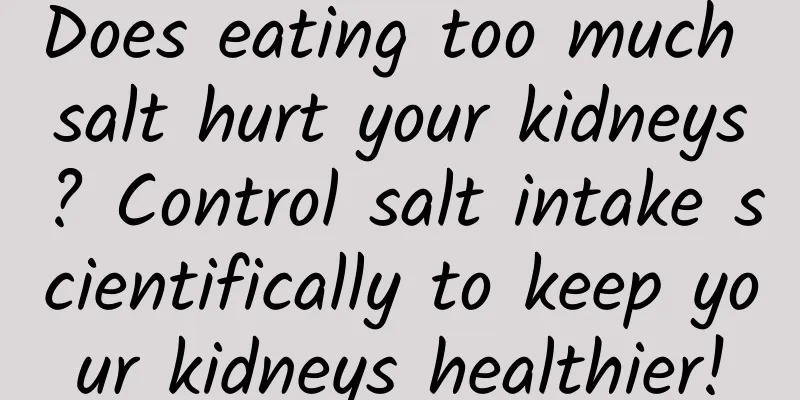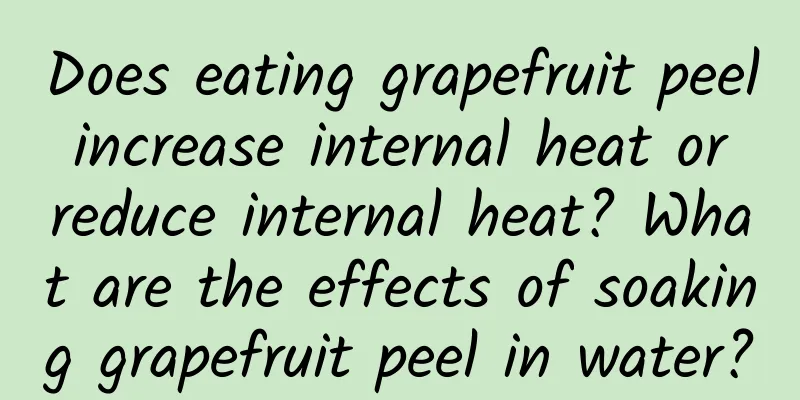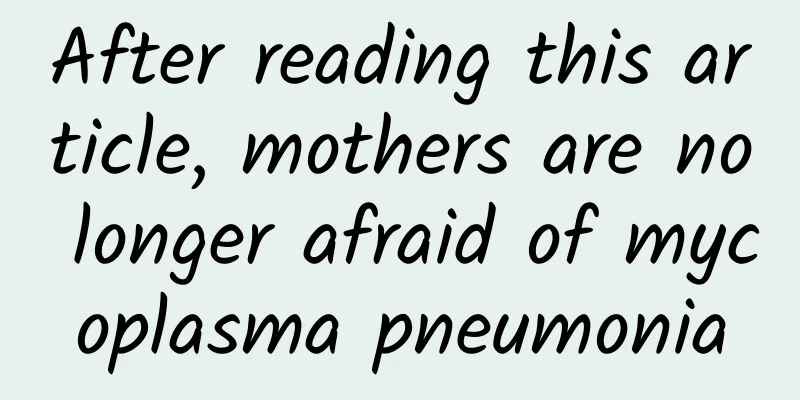Does eating too much salt hurt your kidneys? Control salt intake scientifically to keep your kidneys healthier!

|
In our daily diet, salt is an indispensable condiment. It gives food a unique flavor and allows our taste buds to enjoy the pleasure of food. However, have you ever thought that excessive intake of salt will have a serious impact on our health, especially kidney health? "Eating too much salt will hurt the kidneys" is by no means an exaggeration, but a health warning with scientific basis. Understanding the principle of eating too much salt will hurt the kidneys and mastering scientific methods of salt control are crucial to maintaining kidney health. 1. How does eating too much salt hurt your kidneys? 1. Disturbance of water-sodium balance : The normal physiological functions of the human body depend on the maintenance of water-sodium balance, and the kidneys play a key role in this. When we consume too much salt, that is, sodium chloride, the sodium ion concentration in the body will rise rapidly. In order to maintain the osmotic pressure balance in the body, the body will retain more water, resulting in an increase in blood volume. This is like forcibly increasing the flow rate of a water pump that was originally working normally. The kidneys need to work harder to deal with these excess water and sodium ions. When in this high-load state for a long time, the renal tubules, glomeruli and other structures of the kidneys will be damaged, affecting their normal filtering and reabsorption functions. For example, the renal tubules may atrophy due to excessive work, and the glomerular filtration membrane may become loose, causing substances such as protein to leak out of the urine and form proteinuria, which is one of the important signs of kidney damage. 2. Increased blood pressure : A high-salt diet is one of the important risk factors for hypertension. Excessive sodium ions will increase the sodium ion concentration in vascular smooth muscle cells, triggering a series of physiological changes, leading to vasoconstriction and increased peripheral vascular resistance, which in turn increases blood pressure. Hypertension can damage the kidneys in many ways. Hypertension can cause hardening of the small arteries in the kidneys, narrowing of the lumen, and reduced blood perfusion in the kidneys. Without adequate blood supply, the kidneys cannot filter and excrete metabolic waste normally. At the same time, high blood pressure will increase the pressure in the glomeruli, leading to glomerular sclerosis and further damage kidney function. Long-term hypertension and kidney damage affect each other, forming a vicious cycle that may eventually lead to renal failure. 3. Damage to kidney cells : In addition to the above indirect effects, high salt can also have a direct toxic effect on kidney cells. Studies have found that high concentrations of sodium ions interfere with the signal transduction pathways in kidney cells and affect the normal metabolism and function of cells. It will lead to increased oxidative stress in cells and produce a large number of free radicals. These free radicals are highly oxidizing and will attack the cell membranes, proteins and DNA of kidney cells, causing cell damage and apoptosis. Long-term high-salt diet will cause kidney cells to continue to be damaged, the kidney's self-repair ability will gradually decrease, and eventually cause kidney disease. 2. Scientific salt control methods 1. Understand the salt intake standard : According to the World Health Organization's recommendations, the daily salt intake of adults should not exceed 5 grams. However, in many areas of our country, the salt intake of residents far exceeds this standard. We can use a salt-limiting spoon to accurately control the daily salt intake and gradually develop a habit of light diet. At the same time, it should be noted that in addition to the salt added during cooking, some processed foods, pickled foods, and seasonings also contain a lot of salt. These factors should be taken into account when calculating salt intake. 2. Change the cooking method : During the cooking process, we can use some low-salt cooking methods, such as steaming, boiling, stewing, etc., and reduce the use of high-salt cooking methods such as frying and pan-frying. In addition, you can try to replace part of the salt with other seasonings to increase the flavor of the food. For example, using lemon juice, vinegar, spices, onions, ginger, garlic, etc. can not only improve the taste of food, but also reduce the amount of salt used. In addition, when cooking, you can add salt later, so that the salt is mainly attached to the surface of the food, which can not only meet the taste requirements, but also reduce the intake of salt. 3. Pay attention to the intake of hidden salt : Many processed foods, such as instant noodles, ham, pickles, potato chips, etc., contain a lot of hidden salt. These foods add a lot of salt during the production process to extend the shelf life and increase the flavor. We should try to reduce the intake of these processed foods and read the food labels carefully to understand the salt content. In addition, some seasonings, such as soy sauce, chicken essence, bean paste, etc., also contain high salt content and should be used in moderation. 4. Cultivate a habit of light eating : Taste can be gradually changed, and we should cultivate a habit of light eating from an early age. For children, if they are exposed to a low-salt diet from an early age, their taste buds will be more adapted to light tastes, and it will be easier for them to maintain healthy eating habits when they grow up. For adults who are accustomed to heavy tastes, they can gradually reduce the amount of salt used to allow their taste buds to slowly adapt to light tastes. At the same time, family members should supervise each other and jointly create a family environment for a low-salt diet. Eating too much salt can cause serious harm to kidney health. By understanding the principle of eating too much salt and mastering the scientific method of controlling salt intake, we can protect our kidneys while enjoying delicious food. Let us take action from now on, control salt intake scientifically, protect kidney health, and have a healthy and beautiful life. |
<<: Obesity not only damages the liver, but the kidneys are also silently suffering damage!
>>: Drinking coffee hurts your kidneys? The truth may be different from what you think!
Recommend
Symptoms of calcium deficiency in pregnant women during confinement
Pregnant women are a high-risk group for calcium ...
How long after childbirth is the best time to have a follow-up check?
Women need to have a check-up after delivery to u...
Why are quick-frozen dumplings so cheap? Is it reliable to charge 4 yuan per pound for quick-frozen dumplings?
We all know that there are several kinds of dumpl...
This stuff on eggs is really dirty, be careful of "diseases from eating"
Audit expert: Jiang Tao Vice Chairman of the Scie...
Traditional Chinese medicine treatment of cervical erosion
Cervical erosion is a female disease. When a woma...
When do women age fastest?
The thing that every woman worries about most is ...
How harmful is staying up late? How to remedy it in time? Sleep knowledge post to help you
Some time ago, the topic of a 24-year-old man who...
Long-term use of ticagrelor, these 5 medication details must be known
For patients with acute coronary syndrome and tho...
Eight-week medical abortion
Medical abortion is the most convenient and econo...
What is Northeastern pickled cabbage made of? What temperature is needed to pickle Northeastern pickled cabbage?
Northeastern sauerkraut has the effects and funct...
How to diagnose breast hyperplasia?
I believe that many mothers who have given birth ...
What does it mean when cholesterol is too high? Is lower the better? How can we control it?
Many people find that their total cholesterol lev...
What to do if you have diarrhea during the fifth month of pregnancy
What should I do if I have diarrhea during my fif...
What are the signs of violent behavior in girls?
Many people do not know the meaning of the name &...









